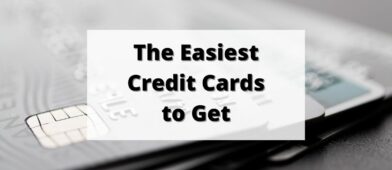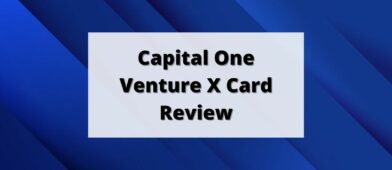A FICO credit score between 650 and 699 is considered “middle of the pack.” Some lenders would say that it represents fair credit, while others use the term, average.
But what types of credit cards can you qualify for with a FICO score between 650 and 699?
Chances are, it will likely get you some decent credit card offers. And if you shop carefully, you can find credit cards that offer solid bonuses and rewards.
Here is a list of cards to consider with a 650-699 FICO score.
Table of Contents
Best Credit Cards for 650 – 699 FICO scores
1. Chase Freedom Flex Credit Card
Best for: Welcome bonus and cash back rewards with no annual fees
The Chase Freedom Flex Credit Card is aimed at consumers who are closer to the higher end of the 650 – 699 credit score range. However, that doesn’t rule out those with scores closer to 650. The cash back benefits of this card alone are a selling point that makes this card worth applying for.
Not only does the card come with no annual fee, but there’s also a 0% introductory APR on both purchases and balance transfers for the first 15 months after the account is opened. And that’s on top of a $200 bonus after spending just $500 within the first three months of opening the card.
The Chase Freedom Flex’s rewards are the most generous of any card on this list. You can earn 5% cash back on travel purchased through Chase Travel, plus 5% of up to $1,500 per quarter in bonus category purchases at gas stations, grocery stores, and select online merchants. There’s also 3% cash back on dining at restaurants and for drugstore purchases and unlimited 1% cash back on all other purchases.
Card Features:
Annual fee: $0
Welcome Bonus: Earn a $200 after $500 in purchases in the first 3 months – also, a solid introductory APR.
Credit Limit: Based on credit score
Reports to all three credit bureaus: Yes
Rewards: 1% on all other purchases on top of 5% cash back on up to $1,500 in combined purchases in bonus categories each quarter (must be activated), and 5% on Chase travel purchased through Ultimate Rewards, 3% on dining and drugstores.
2. Capital One Platinum Credit Card
Best for: Credit limit increases as your credit score improves
Capital One makes its Platinum Mastercard® from Capital One available for those it considers to have “fair” credit. They don’t provide a specific credit score range, but those with scores of 650 and above would be considered.
A major benefit of this card is that after six months of opening your account, your credit limit is eligible for an increase. That will give you an opportunity to raise your limit as your credit situation improves.
Because the Capital One Platinum has a higher APR than most other credit cards, it’s important that you pay off the balance in full each month. The card is ideal for anyone building credit who wants to avoid paying an annual fee. You can also monitor your credit through the CreditWise from Capital One feature.
Card Features:
Annual fee: $0
Credit Limit: minimum $300
Reports to all three credit bureaus: Yes
Bonus: None
Rewards: None
3. Capital One Quicksilver Cash Rewards Credit Card
Best for: High travel rewards
Much like the Capital One Platinum Credit Card, the Capital One Quicksilver Cash Rewards Credit Card helps you improve your credit while you earn rewards. Cardholders receive automatic credit line reviews after as little as six months of opening their account.
You’ll earn 1.5% cashback on every purchase without any spending limits. This program also allows for travel benefits if the use of the Capital One Travel portal. There, you can earn 5% cash back on hotels and rental cars booked through the service.
Like the Capital One Platinum card, the high APR on the Quicksilver Cash Rewards Card means you should be intentional about paying your balance off each month.
Card Features:
Annual fee: $0
Credit Limit: Based on credit score but usually between $300 and $1,000
Reports to all three credit bureaus: Yes
Bonus: None.
Rewards: 1.5% cashback on every purchase and 5% cash back on hotels and rental cars
4. Blue Cash Everyday Card from American Express
Best for: Generous rewards and car rental loss and damage insurance
The Blue Cash Everyday Card from American Express comes with higher cash back rewards at popular retailers such as grocery stores, gas stations, and online stores. At a high rate of 3% cash back, it’s hard to deny that using this card for everyday purchases could really add up in the long run. The card does require a credit score on the higher end of the 650 – 699 range, but it will be well worth the effort if you’re approved for the card.
The benefits of this card are excellent. In addition to the card rewards listed below, you’ll also receive bonus rewards, including 20% back as a statement credit on purchases when you use your Blue Cash Everyday card to check out with PayPal at merchants in the first six months of your membership, up to a total of $150 cash back.
You’re also eligible for an $84 credit if you spend $13.99 or more each month on eligible subscriptions to The Disney Bundle.
And if you like to travel, the Blue Cash Everyday Card is one of the few credit cards remaining that still offers car rental loss and damage insurance. That benefit alone can save you a small fortune each time you rent a car.
Card Features:
Annual fee: $0
APR: 0% for 15 months on purchases from the date of account opening
Credit Limit: $500 minimum
Reports to all three credit bureaus: Yes
Bonus: $200 after you spend $2,000 in purchases within the first 6 months
Rewards: Earn 3% at U.S. supermarkets (up to $6,000/year, then 1%), 3% on U.S. online retail purchases (up to $6,000/year, then 1%), 3% at U.S. gas stations (up to $6,000/year, then 1%) then 1% on other purchases. All other purchases earn unlimited 1% cash back. The program also provides cash back on streaming service subscriptions.
5. Discover it Cash Back Card
Best for: Anyone who wants increased rewards on rotating categories.
Similar to the Chase Freedom Flex Card, the Discover it Cash Back Card may also require a score closer to 699 (or higher) for approval. But that doesn’t rule out those with scores as low as 650.
There is no annual fee, and the card comes with a 0% introductory APR for the first 15 months the card is open.
The Discover It Cash Back Card is popular with those who enjoy earning rewards on rotating categories. You can earn 5% cash back on select rotating categories. For example, in the first quarter of the year, you can earn 5% cash back on up to $1,500 in purchases at grocery stores, drug stores, and select streaming services. That equates to a maximum of $75 every three months.
In addition to the rotating categories, you can earn unlimited 1% cash back on all other purchases. And at the end of the first year, Discover will match all cash back you’ve earned.
Card Features:
Annual fee: $0
APR: 0% Intro APR for the first 15 months that your account is open.
Reports to all three credit bureaus: Yes
Bonus: None
Rewards: Earn 5% cash back in rotating quarterly categories on up to $1,500 in purchases, like restaurants, grocery stores, gas stations, and Amazon.com, then unlimited 1% cash back on all other purchases. Discover will match all the cash back you’ve earned at the end of your first year.
FAQs
To put a 699 credit score into perspective, the average credit score in 2021 was 716. That means while 699 may be in the average range, it’s at the lower end or slightly below average.
For most lenders, a good credit score starts somewhere between 720 and 750. But the good news is that it doesn’t take much to increase a 699 credit score to 720 or higher.
Yes, and some of the credit cards on this list will accept you with a credit score as low as 650. But at the same time, be aware that a 650 credit score will limit the number of credit cards available and the rewards and benefits that will come with each.
A 650 score is considered borderline in the credit card universe, so you may be declined when you apply for certain cards, even those that advertise accepting scores at that level.
Ironically, it may be easier to get approved for a mortgage or an auto loan with a 650 credit score than a credit card. Yes, there are credit cards available for those with a 650 credit score. But the offers are limited, offering fewer rewards and typically no upfront bonus.
The best way to get better credit cards is by improving your credit score. 650 – 699 is an excellent score range to launch a credit improvement program. It represents the fair to average credit score range, which means you likely have a few late payments in your recent past, but probably nothing major, like bankruptcy or foreclosure.
That being the case, resolve to make all payments on time. As the months pass and the on-time payments add up, your credit score will gradually improve. Also, pay off any past due balances, like collection accounts. Though they will remain on your credit report, a paid collection is better for your credit score than an open one.
And as always, dispute any negative credit information that appears on your report in error. You can learn this by checking your credit report regularly. Many banks and credit unions will make your credit report available to you free of charge as a benefit. But if you don’t have that benefit, you can access your free credit report each year using Annual Credit Report.com.
Final Thoughts
Whether you’re looking to maintain your current credit score or strengthen the one you have, there are many credit card options to help you get there. 650 – 699 is something of a borderline credit score range, so you may not necessarily get the card you want.
But while you may not be approved by one company, other companies will approve you for a credit card. And properly managing that card can help you improve your credit score so that you’ll get even better credit cards in the future.
Be sure you research different credit card companies before deciding which one to go with. But even before you start your search, review your credit report and make sure it’s all its supposed to be. For example, if there are errors on your credit report that are driving your score down, take steps to fix them. Once you do, your credit score should rise, opening opportunities for more credit card offers.



